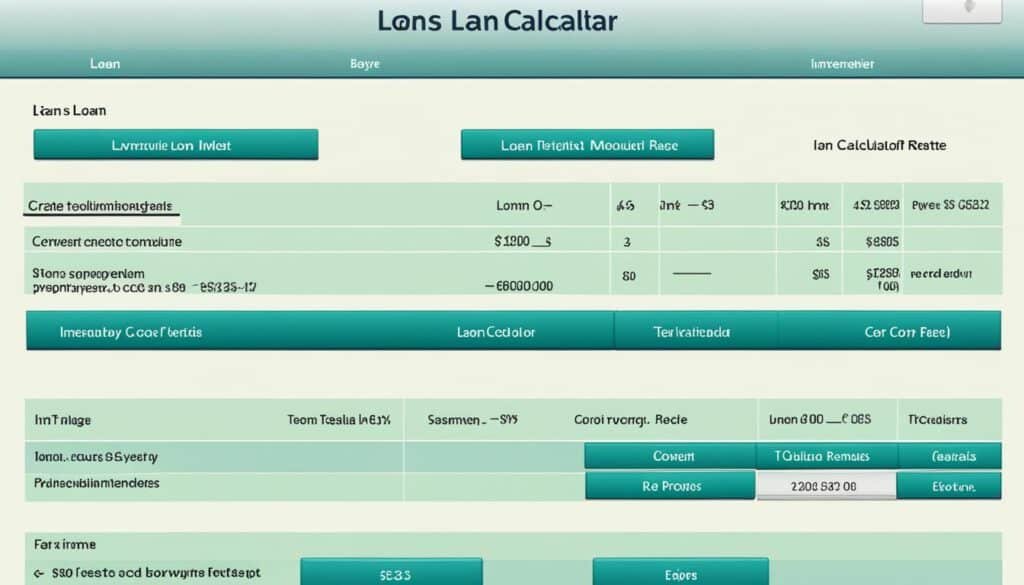How Do I Apply For A Loan?
Apply For A Loan: Personal loans offer a great way to get money for different needs. They can help with home improvements, debt consolidation, and unexpected expenses. But, it’s vital to know how getting a loan can change your credit score.
To start, check how good your credit is. You don’t have to have perfect credit, but it helps. People with good credit (a FICO® Score☉ of 670 or more) get the lowest interest rates. Seeing your credit report can show what’s affecting your score. Then, you can try to make it better before applying.
Next, decide how much you want to borrow and how much you can pay back every month. Think about why you’re getting the loan. It could be for home improvement, debt consolidation, or something personal like an event or unexpected expense.
After figuring out your credit and money needs, it’s time to look at different lenders. Check out online lenders, banks, and credit unions. Every lender has its own rules about credit scores, how much you can borrow, how you pay it back, and the interest rates. So, it’s smart to compare various options to find what works for you.
Many lenders let you pre-qualify for a loan. This means they check your credit informally, which doesn’t hurt your score. It lets you see what various lenders might offer you in terms of the amount you can borrow and the loan terms.
Once you pick a lender, you’ll have to officially apply for the loan. This can often be done online but might also need a trip to the lender’s office. You will need to give personal and financial details. This includes any paperwork they want and agreeing to a hard credit check.
Understanding and following these steps can make it easier to get the loan you need. It’ll also help you get the best deal on interest rates and loan terms.
Key Takeaways
- Check your credit score before applying for a personal loan to understand your creditworthiness and potential interest rates.
- Determine the loan amount you need and ensure the monthly payments fit your budget.
- Shop around and compare personal loan options from various lenders, including online providers, traditional banks, and credit unions.
- Consider pre-qualifying for a personal loan to get an idea of your approval odds and loan terms without impacting your credit score.
- Be prepared to provide personal and financial information, as well as any required documentation, when completing the formal loan application.
Understanding Your Credit Score
Your credit score is vital for getting a personal loan. It also affects the interest rate you’ll get. It’s good to know your FICO® Score to see how creditors view you. If your credit score is low, you can make it better. Pay off credit card debt, catch up on late payments, and don’t get new credit if you don’t need it. Also, fix any mistakes on your credit report.
Checking Your FICO Score
FICO Score ranges from 300 to 850. The higher it is, the less risk you seem to lenders. They look at this score to decide if you can get a loan and what interest rate you’ll have. Knowing your FICO Score is key. It helps you see what you can do to be in a better place before applying for a loan.
Improving Your Credit Score
To lift your credit score, work on paying off your credit card bills. This is really effective, especially for debts that are high compared to your limit. Also, always pay your bills on time. If you spot any mistakes on your credit report, be sure to correct them. Having a variety of credit types and not adding too many new credit inquiries helps, too.
Impact of Personal Loan on Credit Score
Getting a personal loan can change your credit score in good and bad ways. When you first apply, your credit score might go down a bit. But, if you repay the loan on time, your credit history could do better. This could mean a higher credit score in the future. Remember, keeping an eye on how you use your credit cards and debts is essential to protect your credit score.
Determining Your Loan Requirements

Before you get a personal loan, know how much you need. Check if your budget can handle the monthly payments. Think about why you need the loan. Is it for a house upgrade, to pay off debts, or for sudden costs? Figure out exactly what amount you need for your situation.
Calculating the Loan Amount Needed
Decide why you need the loan. For a home project, get estimates from contractors to find the total cost. For debt consolidation, add up your debts to see how much you need. Facing unexpected costs? Look at your budget to figure out the minimum amount you require.
Estimating Monthly Payments
After picking a loan amount, use a loan calculator to see your likely monthly payment. Watch your budget to ensure you can afford this payment. Make sure it works with what you can manage.
| Loan Amount | Loan Term | Interest Rate | Monthly Payment |
|---|---|---|---|
| $20,000 | 60 months | 8.99% | $404.66 |
| $30,000 | 48 months | 7.25% | $703.50 |
| $15,000 | 36 months | 6.50% | $456.32 |
By thinking hard about the loan amount and monthly payment, you make sure the loan is right for your budget. This helps you reach your financial goals, like upgrading your house, paying off debts, or handling sudden costs.
Researching and Comparing Lenders

Getting a personal loan means you should look at what different lenders offer. Online lenders, banks, and credit unions all have unique terms. These include credit score needs, how much you can borrow, repayment times, and interest rates. It’s smart to search around to match your financial goals with the right lender.
Online Lenders vs. Traditional Banks
Online lenders are becoming more popular. They have easy applications and might be more flexible with credit scores. Traditional banks, though, could give lower interest rates. They also might offer a more personalized experience for those with great credit. Credit unions often provide good rates for their members with strong ties.
Comparing Loan Terms and Rates
When you’re looking at lenders, pay close attention to the loan terms. This includes online personal loan interest rates, how long you have to pay back, and any extra fees. The loan’s total cost over time is important, not just the interest rate. Remember personal loan faqs to minimum loan amount check what the lender needs, like your credit score, and if you need to put up anything as security.
It’s important to compare lenders when looking for a personal loan. This process can help you find the best loan for your needs, like debt consolidation. By knowing what each type of lender offers, you can make a choice that matches your financial plan and budget.
Pre-Qualifying for Personal Loans

Before you formally apply, many lenders let you pre-qualify for a personal loan. You application online just need to share some basic info. This step involves a soft credit check, which won’t hurt your credit score. You’ll get initial loan offers and loan terms online personal to compare what’s minimum loan unsecured loan consolidate debt credit approval out there.
For pre-qualification, you provide your name, income, and how much you want to high-interest credit card debt application online minimum loan borrow. The lender then does a soft credit check. They see if you seem like a good fit rates and terms without online personal affecting your credit score with a hard credit check consolidate debt. After this, you receive personalized loan options with estimated interest rates.
Pre-qualifying is useful for comparing loan offers from different lenders. It lets you business day personal installment loan funding check out what’s available without fixed rate personal subject to change without notice installment installment risks to your credit score. Then, you’re loan funding more ready to choose the right personal loan for you, wisely.
Apply For A Loan

Finding the best loan for your needs is the first step. Then, it’s time to fill out the loan application. While many lenders let you apply easily online, some big banks might need you to fill out the form in-person.
Completing the Loan Application
The loan application will ask for your personal info like name, address, and date of birth. It also includes your financial info, such as your job details, income, and debts. Don’t forget to bring a state-issued ID and proof of where you live.
Required Documents for Loan Application
Most lenders want to see income documents to make sure you can pay back the loan. So, you might need to show your pay stubs, tax returns, or bank statements. This, along with getting your credit checked, helps the lender decide how much they can lend you and under what terms.
Reviewing Loan Offers and Acceptance
After you put in your personal loan request, look closely at the offers you get. You need to know the Interest rate, repayment term, monthly payment amount, and any extra costs. These could be late payment charges or prepayment penalties.
Understanding Loan Terms and Conditions
Look through the loan agreement to make sure you’re okay with its terms. This includes the loan terms, the loan conditions, and other important details. Check out the APR, the payback time, extra fees, and any penalties.
Signing Loan Documents
After checking and accepting the loan offer, you must sign the loan documents. By doing so, you commit to paying back the loan. Make sure to read all the documents carefully before you sign.
Also Read : How Do I Choose The Best Loan Option For My Financial Situation?
FAQs
Q: How do I check my rate for a loan?
A: You can easily check your rate for a loan by applying online and providing some basic personal and financial information.
Q: What are the available loan options?
A: We offer a variety of loan options including unsecured personal loans, personal lines of credit, and consolidation loans.
Q: Can I apply for a loan online?
A: Yes, you can easily apply for a personal loan online in just a few simple steps.
Q: How can I use a personal loan?
A: You can use a personal loan for just about anything, whether it’s consolidating debt, making a major purchase, or covering unexpected expenses.
Q: What is the process to apply for a loan online in 3 steps?
A: Applying for a loan online in 3 steps involves checking your rate, selecting your personalized loan options, and completing the online application.
Q: What is APR and how does it affect my loan?
A: APR stands for annual percentage rate and represents the annual cost of borrowing. It includes the interest rate and any additional fees associated with the loan.
Q: Are personal loans unsecured?
A: Yes, personal loans are typically unsecured, meaning they do not require collateral. However, some lenders may offer secured personal loans depending on your credit history.
Source Links
- https://www.investopedia.com/articles/personal-finance/010516/how-apply-personal-loan.asp
- https://www.experian.com/blogs/ask-experian/personal-loans-what-to-know-before-you-apply/
- https://www.nerdwallet.com/article/loans/personal-loans/how-to-get-a-personal-loan
